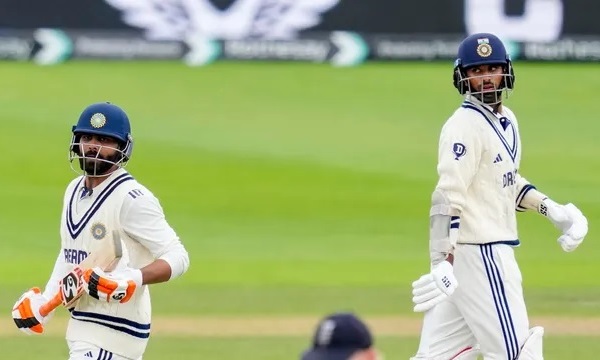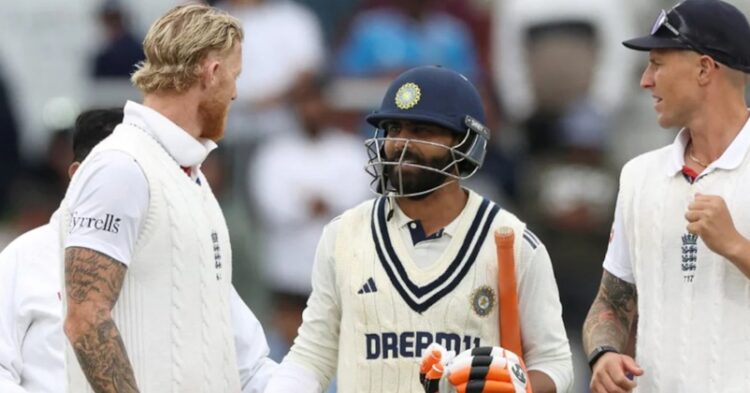The fourth Test between India and England at Old Trafford ended not just in a draw but also in a heated exchange of opinions and a touch of controversy. As the final session unfolded, the Indian batters Ravindra Jadeja and Washington Sundar were closing in on personal milestones, with both nearing well-deserved centuries after a long and disciplined day at the crease. With the result already evident, England, sensing a stalemate, proposed ending the match early but India declined, wanting their batters to have the opportunity to complete their hundreds. What followed was a brief yet tense standoff on the field and a conversation that continued off it.

The incident turned sharper when visibly irked Ben Stokes approached Ravindra Jadeja during the final overs, asking whether he truly wanted to score a hundred against part-time bowlers. The tone and timing of the offer sparked debate, with former England cricketer Geoffrey Boycott weighing in firmly in India’s favor.
Geoffrey Boycott, writing in his column for a leading publication, said Ravindra Jadeja and Washington Sundar had every right to continue batting. He pointed out that both the players had “worked their socks off” throughout the day and had earned the right to pursue their centuries, regardless of the circumstances. According to him, England’s frustration was misplaced, especially considering the fact that they were “gobby enough” when it was their turn and they should also look at their own history of aggressive, vocal conduct on the field.

He reminded readers that England had been particularly vocal during the series and if they were bold enough to dish it out, they should be equally prepared to receive it. Geoffrey Boycott referenced the frequent chirping heard via stump microphones and questioned why India should oblige them with an early handshake just because England has had enough.
Reflecting on the mindset of players like Jadeja and Sundar, Geoffrey Boycott described them as mentally tough and unyielding. He added that if he himself had been batting on 89 after a day’s hard graft to save a Test match, no one could have persuaded him to walk off either. He praised both the batters for their patience, shot selection and defensive resolve, stating that they played the situation with discipline and class, and fully deserved to chase their centuries.

In the end, Geoffrey Boycott’s words echoed the sentiments of many Indian fans who saw the decision to continue batting not as arrogance but as a rightful assertion of hard-earned achievements. In the world of elite cricket where grit and pride often collide, Jadeja and Sundar’s decision to stay at the crease wasn’t just about numbers, it was about respect for the effort it took to get there.




